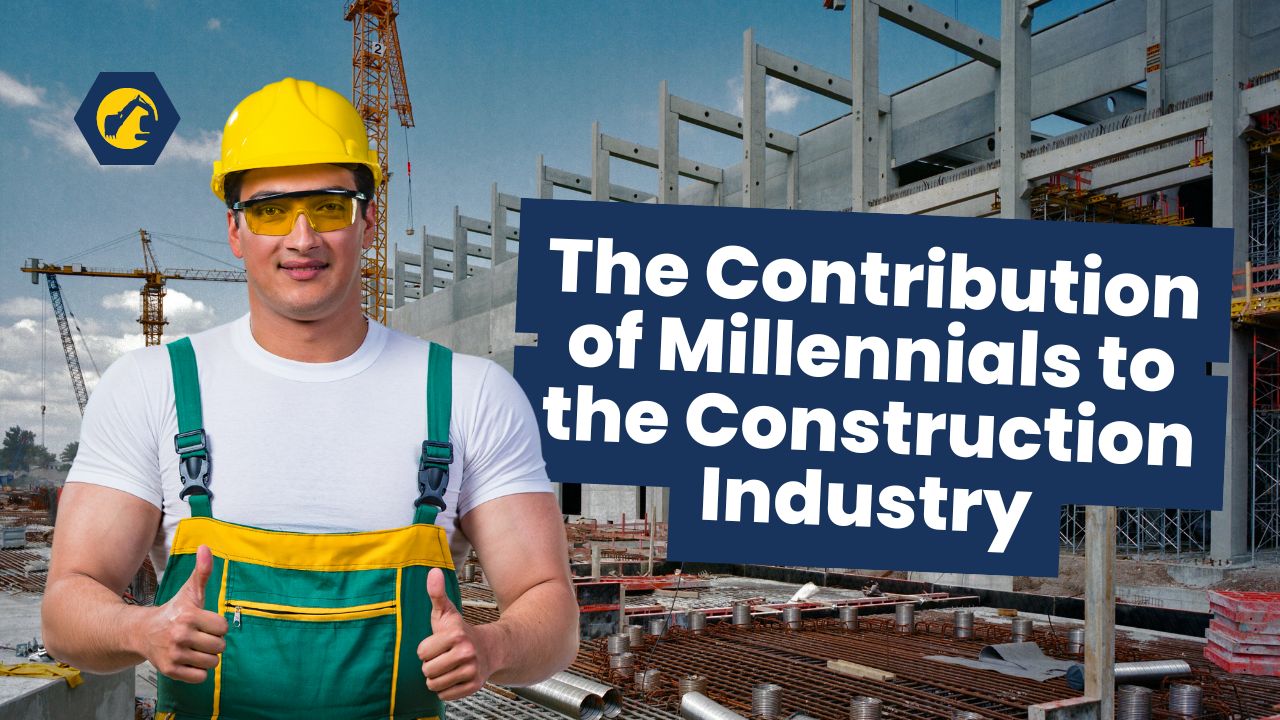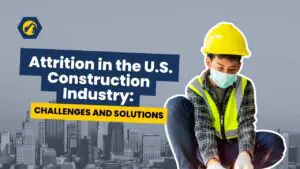
Employment of construction managers is projected to grow ten percent over the next ten years, faster than the average for all occupations. The Bureau of Labor Statistics reported that in 2019, the U.S. construction industry added approximately 12,000 jobs a month. Yet while the last of the baby boom generation has entered the 55 years or older category as of 2020 and the millennial generation (born between 1981 and 1996) now accounts for the majority of people in the U.S. workforce (over half of whom are managers with the power to make decisions and generate reports), 80% of construction companies can’t find the workers they need according to AGC (Associated General Contractors of America).
What’s going on? In a recent survey published by the HR Policy Foundation, over two-thirds of companies surveyed said that their own millennial workforce was above-average or even exceptional.
So why don’t we see more millennials in construction, especially construction management? Some say millennials simply aren’t interested in hard physical labor like construction work, choosing instead less physically demanding work. Others say more millennials are pursuing white-collar, cerebral careers in Corporate America. A Pew Research study shows 27% of millennial women and 21% of millennial men have received a bachelor’s degree, compared to 17% and 14% of Baby Boomer men and women, respectively. The things that Millennials want from their careers were unheard of when their predecessors were entering the labor force. Are these things incompatible with an industry like construction, historically known for long work weeks (60 or even 80 hours) frequent travel requirements, higher stress levels and below average flexibility (alternative working schedule and work life balance) compared to other jobs?
What Do Millennials Want?
Millennials value company culture more than any other generation that’s come before them. What does this entail? Things like:
- Corporate Social Responsibility: Millennials are willing to spend more on brands that support the causes that matter to them. In general, environmental responsibility and combatting climate change are popular causes, as are volunteering and working with charities.
- Diversity and Inclusion: More than any other generation, millennials consider themselves politically independent, religiously unaffiliated, and interested in a wide variety of different nations, cultures, ideas, and beliefs.
- Work-Life Balance: While competitive pay matters to Millennials just as it has to Baby Boomers, Millennial professionals want to work in an environment that prioritizes the health and happiness of its workers—even if that means giving up a bit of pay. They want flexible schedules and the freedom to work independently at times.
- Ideas Above Things: They recognize the value of ideas, more than their predecessors, and are more willing to work for a company that creates and nurtures those ideas. They are more likely to stay on longer with an employer if that company’s vision and direction are clear, and if they perceive the company inspires enthusiasm amongst its employees.
- Feedback and Growth: In general, Millennials want more feedback on their performances, partly because they want the affirmation, and partly because they see learning and improving as critical (personal development is paramount). They desire a clear path to upward mobility.
- Engagement and Purpose: Millennials crave a sense of purpose and want to feel engaged at work. Nearly two out of three millennials state their organization’s purpose is a reason why they choose to work there, yet in organizational cultures without perceived purpose, only one out of five millennials are satisfied at work. (Deloitte 2015 Millennial Survey)
- Technology and Innovation: Millennials in construction want to push the envelope and drive They have been raised with technology at their fingertips. They see it as an essential tool in the workplace and in relating to others, both in and out of the office.
Can the construction industry accommodate this new generation of leaders? They will have to, and the shift has already begun.
Some of this has happened naturally, while some of it has been forced upon the sector by the recent Covid-19 pandemic. Employment of new technology, remote based management, increased communication and flexible, innovative approaches to problems are becoming more widespread. This trend will need to continue just as a thoughtful, methodical approach needs to be taken in order to attract, hire and maintain Millennial talent.
For the Best
Here are six ways that this group will be a positive influence on the construction industry:
- Innovative Thinking. Millennials are highly skilled at thinking outside-the-box.
- Loyalty and Commitment. As long as their needs are met (the most important being competitive compensation, sense of purpose, forward-thinking company culture, and opportunities for advancement), they will remain loyal.
- Technological Savvy. Construction has not traditionally been a tech-heavy field, but things are rapidly chang These days construction crews manage their projects with mobile apps and use software to conduct remote meetings. Millennials are eager to embrace anything tech-related. They are also skilled at bridging the gap between technology and personal relationships that construction projects depend on.
- Millennials are adamant about the importance of work-life balance. This is not to say that they are lazy, rather that they understand the importance of nurturing a personal life outside of work in order to be more productive in their career.
- Communication and Collaboration. Fortunately, many Millennials grew up in an environment where authority figures like parents and teachers often treated them as team members rather than subordinates, and they understand how to work together to achieve a goal.
- Green Building Commitment. Many Millennials have a strong, deep-seated concern for the environment and thus a vested interest in creating sustainable work and living spaces.
Construction remains a demanding industry, in which it isn’t uncommon to suffer high levels of stress and even burnout. Long hours and frequent travel remain the norm and can take a toll. However things are changing as technology advances and more and more Millennials permeate the work force, bringing with them their own ideas about what makes a successful workplace and worthwhile career choice. Given the labor market forecast and rapidly evolving technology with its various labor and time saving features, it seems certain that the industry can’t help but move in a new direction. As they move up the ranks in construction, knowing how “it used to be” and not wanting that anymore, Millennials are bringing their creativity and motivation to the table, finding ways to increase not just profit but organization, job satisfaction, and productivity.






